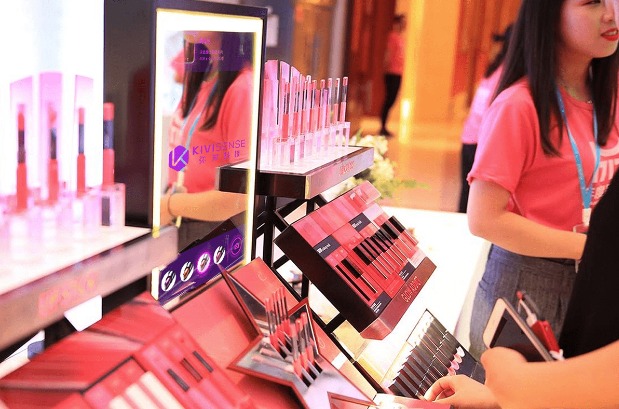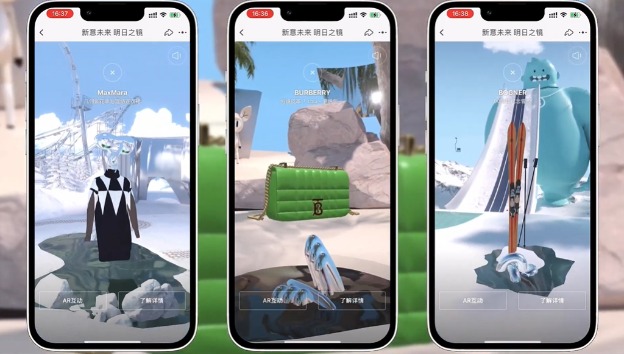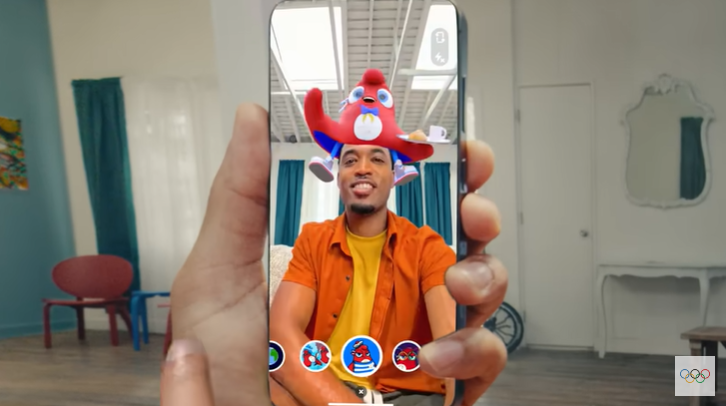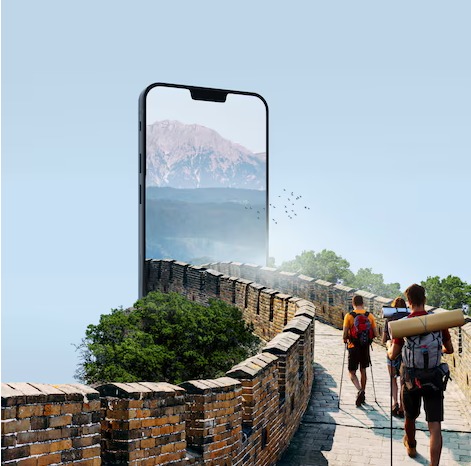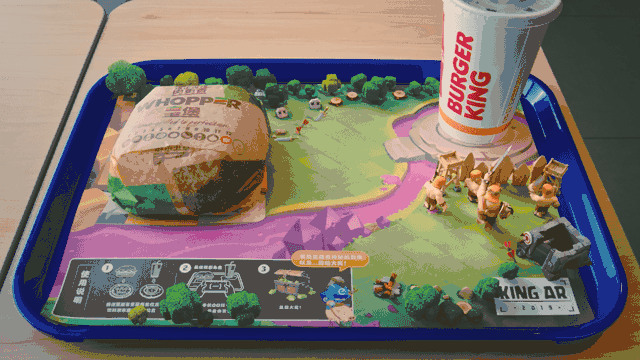What is AR in beauty and Cosmetics?
After making a mark in gaming and entertainment, AR technology is finding innovative applications in various other sectors like education, healthcare, and retail. Beauty and cosmetics industry has been particularly receptive to AR due to its visual nature.
From providing virtual try-on solutions for beauty products to interactive in-store campaigns, AR is making fashion experiences more immersive and engaging for customers. Brands are using it for interactive storytelling and enhancing visibility in a highly crowded beauty market.
How is AR technology and the beauty industry connected?
Beauty and cosmetic sectors are always adopting the latest technological advancements to improve their customer experience by enhancing their fashion experiences. Global market for AR and VR applications in the beauty and cosmetic sector is expected to grow at a CAGR value of 25.5% from 2022 to 2027.
AR integration makes virtual beauty experiences more personalized and realistic where customers can visualize beauty products on them in real time and determine how they will look on them in reality. This is very beneficial for beauty and cosmetics brands as it enhances their brand engagement through exciting virtual experiences, driving more sales and reducing product returns.
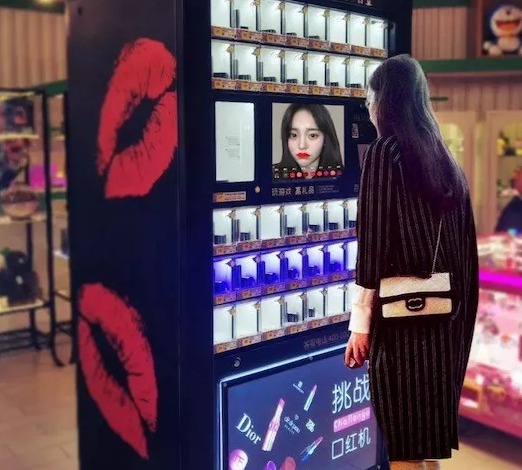
Rising trend of AR integration in beauty and cosmetic sector
Today’s customers, especially Gen Z, prefer virtual shopping experiences over traditional approaches. According to the latest surveys, 60% of young customers believe that brands should sell their products through metaverse platforms. These stats clearly show how AR and VR integration is crucial in the e-commerce sector, specially the beauty and cosmetic industry.
All the luxury fashion and beauty brands are incorporating virtual experiences into their marketing and advertising strategies to make them more impactful and realistic for users. Moreover, the technology’s ability to provide customized beauty recommendations according to the user’s skin type and preferences enhances user experiences significantly.
How AR redefines beauty experiences?
Virtual make-up try-ons
AR enhances beauty experiences through virtual make-up try-ons where users can try different make-up looks using their smartphones or AR-powered devices. This lets them try different products and shades, customize make-up intensity, and experiment with new and bold looks which would not be possible otherwise.
It uses facial tracking technology to scan and map user’s facial features to provide personalized make-up suggestions. This gives a hyper-realistic preview of virtual make-up looks based on the user’s unique facial features like skin type, eye shape, brows, and lips. Kivisense provides innovative make-up and other virtual fashion try-ons that enhance the user’s online shopping experience and boost brand conversion rates effectively.
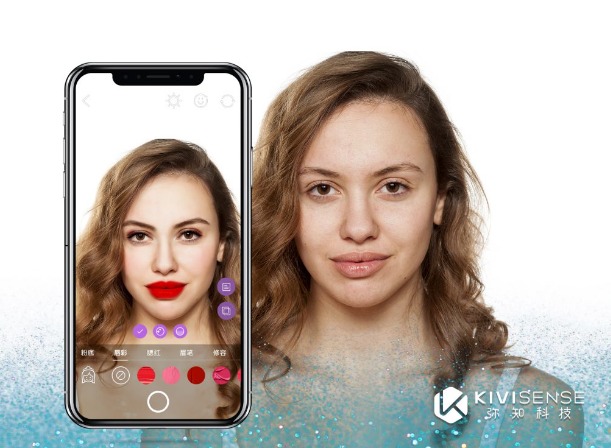
Hair color and style simulations
Besides make-up, AR technology also helps users to experiment with different hair colors and styles virtually. Many people are hesitant to cut or color their hair because of the fear of undesirable end results. However, AR filters allow users to try out any hair colors and styles without any permanent changes. This provides a risk-free way to explore new looks.
Interactive make-up tutorials
AR can also enhance learning experience for make-up applications through interactive make-up tutorials. Make-up brands can use these AR-powered tutorials to tell their customers how to apply specific make-up products and provide tips and tricks to enhance their looks.
AR can also overlay instructions directly on the user’s face through their smartphone camera. This helps users learn effective make-up techniques without applying physical products. The immersive experience also helps them avoid wasting money on any unnecessary products and only buy the products that suit them perfectly.
Personalized product recommendations
AR technology can analyze user preferences and behaviors to suggest products that align with their tastes and needs. The technology can also track which products customers frequently try and recommend similar products. Such personalized experiences make customers feel valued and understood. This increases their confidence in the brand and its products, which leads to more conversions and product sales.
Marketing Benefits of AR in beauty and cosmetics
Interactive AR campaigns
Gone are the days of static billboards for product marketing and advertising, now brands are adopting digital out-of-home (DOOH) ads to attract more customers. Such innovative campaigns are displayed on digital screens in high-traffic areas. These ads showcase products in a dynamic and interactive manner and capture the attention of customers instantly.
For example, Perfect Diary, a rapidly growing beauty brand targeting Millennials and Gen Z, launched Perfect Diary Silver Stiletto Lipstick through an immersive AR campaign. The brand hired actress Zhou Xun and actor Liu Haoran to promote the new lipstick line. The campaign lets users experience the lipsticks through interactive elements using AR gamification.
In-Store Interactive Displays
Brands are using interactive AR displays to attract customers in physical retail stores. This lets customers visualize and explore beauty and cosmetic products and get their details in real time. This makes the in-store shopping experience more immersive, engaging, and informative. It also attracts more foot traffic which enhances brand reach and engagement.
Improved brand engagement and sales
Adding unique and immersive AR experiences to your beauty product’s marketing can improve brand engagement significantly. Several studies have shown that 59% of customers are likely to make a purchase that they have visualized through AR technology. Immersive AR experiences help customers remember the brand and foster a deep connection based on trust. This improves conversion rates by driving more sales and less product returns.
For example, Herborist introduced an immersive AR virtual world “Bo-Bo Rabbit” in collaboration with Kivisense. The campaign was aimed at celebrating the Chinese Year of the Rabbit in a unique way. The AR experience takes users to a breathtaking floral wonderland set in real-world scenes. In that virtual world, users can explore hidden factories, labs, and stores. They can also uncover the secret ingredients of Tai-Chi series of skincare products from a first-person perspective. The AR experience left a lasting impression on viewers, driving engagement and sales significantly.
Sustainable approach
With increasing environmental concerns, sustainability is becoming a primary focus for make-up and cosmetics brands. AR technology promotes sustainability by reducing the need for physical make-up samples and testers. It replaces traditional wasteful customer sampling practices with a more safe, convenient and environment-friendly approach through virtual try-ons and AR filters.
Inspiring use cases of AR in beauty and cosmetics
Maybelline NY
Maybelline NY introduced a new AR game called House of Beats for Single’s Day. This unique and innovative game provides users with a virtual gamified shopping experience. Users can try on their favorite makeup looks with just a simple tap from their smartphones and AR-powered devices. Moreover, they can virtually explore and collect many exciting makeup rewards. This lets the users play interactive games while trying their favorite makeup products and makes their shopping experience fun.
Gucci Flora
Gucci provides an interactive AR exploration of its famous women’s perfume Gucci Flora Gorgeous Gardenia. Users can join Gucci Beauty Mini Program to enter the captivating anime world of Gucci Flora. In an immersive environment, they can explore the fragrance’s ingredients and uncover the secrets behind Gucci Beauty’s floral scents. They can also virtually place the perfume in their space through SLAM AR. This helped the brand in effective storytelling through visual presentation of perfume.
Biotherm
Biotherm launched an interactive AR experience at its Hainan popup store to promote the Cera Repair cream. The immersive experience lets users interact with dreamy AR clouds that not only enhance the visual appeal of the store but also provide educational content about the product’s benefits and ingredients. The gamified virtual experience enhances brand engagement and visibility, leading to better conversions and more sales.
YSL beauty zone
YSL Beauty has created an interactive AR space called “YSL Beauty Zone VR Pop-Up” at cdf Sanya Mall in collaboration with China Duty Free Group. Customers can explore YSL’s three pillar beauty products in an immersive environment through an Oculus VR headset. The campaign served to increase beauty engagement through a perfect blend of VR immersion and offline retail. It was a success and drove significant in-store traffic and conversions for the brand.
Victor&Ralf
Viktor&Rolf recently introduced an exclusive pop-up store for their fragrances at Hainan DFS. The immersive space showcases their signature scents and lets users explore them interactively. It provides a seamless user experience that uses AR to visualize scent profiles in an immersive environment. This lets users connect with their amazing fragrances deeply, leading to increased customer satisfaction and better brand engagement.
Future trends of AR in beauty and cosmetics sector
With advancements in metaverse and AI, beauty and fashion experiences are expected to become more seamless, immersive, and realistic across social, in-store, and digital platforms. Integration with social media platforms like WeChat, Snapchat, and Instagram will make beauty and cosmetics marketing more interactive and reach wider audiences through influencers.
The digital approach will lead to more inclusive, sustainable, and personalized beauty experiences catered to individual needs. Moreover, this will enhance the profit margin of make-up and cosmetic brands through more user engagement and increased online and foot traffic, leading to more sales and revenues.
Conclusion
AR has already transformed beauty experiences and marketing through interactive virtual try-ons and engaging advertising campaigns. However, with more and more brands adopting this technology, we will witness amazing innovations in the beauty and cosmetic sector in the near future.
If you want to grow your beauty and cosmetic brand and improve conversions through better engagement and enhanced user experiences, contact us to turn your digital vision into reality. Kivisense provides industry-leading AR, VR, and AI solutions for various e-commerce brands. We would love to help you achieve your goals.

